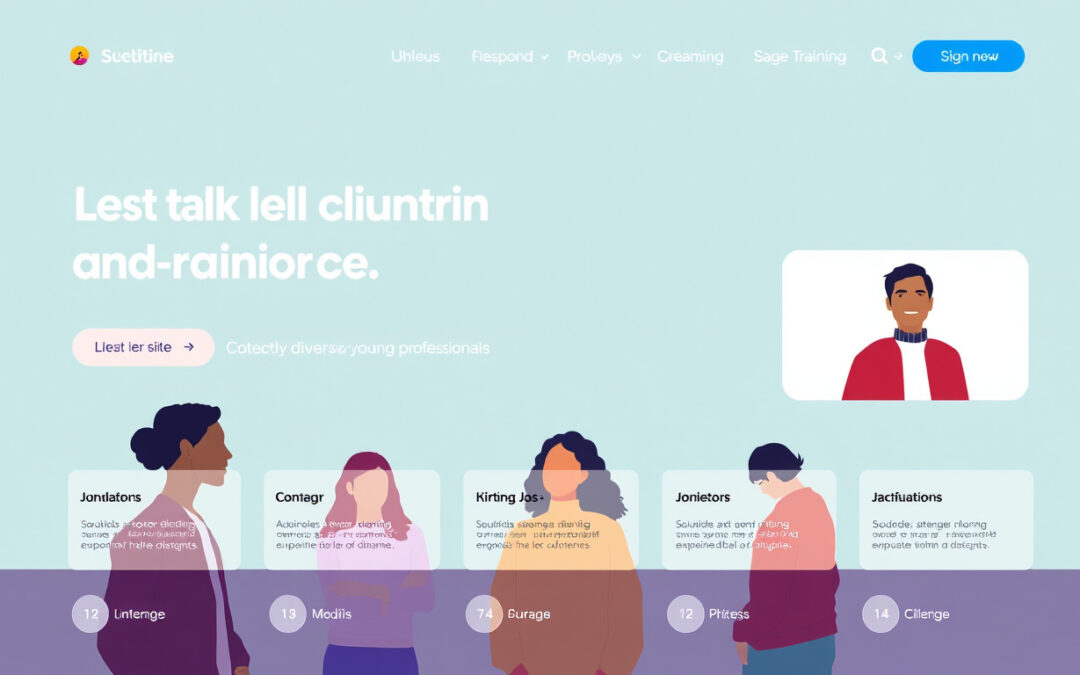
BLOG
In today’s digital world, smooth server operation drives business success. Server intervention helps us spot problems early and manage crashes that cause downtime and data loss. When servers show signs of failure, quick action keeps operations running and protects a company’s reputation and earnings. This article shares strategies and best practices that guide interventions before and during server crashes.
Understanding Server Intervention and Its Importance
Server intervention means taking actions that monitor, maintain, and restore server functions when issues appear. Servers form the backbone of IT. They host applications, websites, databases, and key services. A crash disrupts access, loses transactions, and can damage data. Timely intervention reduces such disruptions.
Crashes occur because of hardware faults, software bugs, wrong settings, cyber-attacks, or resource shortages. Proactive intervention stops problems before they grow and helps recover when they occur.
Common Causes of Critical Server Crashes
To prevent crashes, know these common causes:
- Hardware Failures: Faulty hard drives, memory, power supplies, or overheating parts.
- Software Bugs: Unpatched operating systems, database glitches, or application errors.
- Configuration Issues: Incorrect settings, conflicting parameters, or outdated drivers.
- Resource Exhaustion: High CPU usage, memory leaks, or full disk space.
- Cyber Security Attacks: DDoS, ransomware, or unauthorized access attempts.
- Network Failures: Unstable connections or faulty network devices.
Knowing these causes helps IT teams use targeted interventions that lower crash risks.
How to Prevent Critical Crashes Through Effective Server Intervention
Preventing crashes depends on a strong server intervention plan. You need the right tools and clear steps.
1. Regular Monitoring and Alerts
Monitor key server health metrics—CPU load, disk use, memory, and network status. These metrics show problems early. Automated alerts tell administrators when levels exceed limits so they can act fast.
2. Scheduled Maintenance and Updates
Apply security patches, firmware updates, and software upgrades. These updates protect against bugs. Scheduled maintenance also means clearing cache, rebuilding indexes, and checking backups.
3. Backup and Redundancy Plans
Good intervention keeps reliable backups to restore data after a crash. Using redundant hardware and failover protocols means the system keeps running even when parts fail.
4. Resource Optimization
Regular checks help spot apps or processes that waste resources. Tuning configurations or scaling the infrastructure stops overloads from causing crashes.
5. Security Hardening
Use firewalls, intrusion detection, and access controls to cut vulnerabilities. Regular security audits check that these measures work well.
Immediate Actions During Critical Crash: Handling Server Intervention
Crashes might still happen despite our best efforts. Acting fast can lessen the harm.
Step 1: Identify and Diagnose the Crash
Look at server logs, error messages, and dashboards to find the cause. Separate hardware issues from software problems so you choose the right fix.
Step 2: Communicate the Issue
Tell users and stakeholders right away. Clear communication sets the right expectations for downtime.
Step 3: Execute Recovery Procedures
Based on your diagnosis, act by safely rebooting the system, restoring backups, restarting services, or replacing faulty parts.
Step 4: Analyze and Document Root Cause
After recovery, study the crash and write down its cause. This step refines future prevention.
Step 5: Implement Long-Term Solutions
Use your findings to adjust settings, apply patches, or upgrade hardware so the crash does not recur.
Best Practices for Effective Server Intervention
- Automate as much as possible. Automation cuts human error and speeds up responses.
- Keep comprehensive documentation. Record interventions, settings, and incidents to build a knowledge base.
- Train support staff continuously. Regular training keeps skills sharp in troubleshooting and new server tech.
- Test recovery protocols regularly. Run crash simulations to ensure readiness.
- Maintain vendor support contracts. Expert help can speed up complex interventions.
Server Intervention Tools and Technologies
Modern intervention uses a suite of special tools:
- Monitoring Solutions: Tools like Nagios, Zabbix, and Datadog track performance and send alerts.
- Backup Software: Veeam, Acronis, or native cloud backups ensure quick data recovery.
- Automation Frameworks: Ansible, Puppet, or Chef manage configurations and recovery tasks.
- Security Platforms: Firewalls and SIEM tools detect and respond to attacks.
Using these tools strengthens both proactive and reactive approaches.

Checklist for Preventing and Handling Critical Server Crashes
- Set up continuous monitoring with alerts.
- Schedule regular software and hardware updates.
- Use reliable backups and redundant infrastructure.
- Check resource usage regularly.
- Harden security with multiple layers.
- Develop clear protocols for crash diagnosis and recovery.
- Keep detailed incident documentation.
- Train IT teams in emergency response.
- Test disaster recovery plans often.
- Maintain up-to-date vendor and support contacts.
FAQ: Server Intervention for Critical Crashes
What is the best way to start server intervention after a critical crash?
Start by checking system logs and using monitoring tools. This helps you decide if the issue is hardware, software, or network-based. Then, begin with actions like a safe reboot, restoring backups, or replacing faulty parts.
How often should preventive server intervention occur?
Monitor continuously. Schedule formal maintenance monthly or quarterly based on the server’s critical role and workload.
Can server intervention prevent cyber security-related crashes?
Yes. Regularly applying security patches, using firewalls, and employing intrusion detection and access controls reduces vulnerabilities that may lead to cyber-attacks and crashes.
Conclusion
Server intervention is key to keeping systems up. It links careful monitoring, regular maintenance, and quick recovery methods to reduce downtime and data loss. Following best practices and using modern tools not only keeps business running but also builds trust and boosts efficiency.
For more strategies on managing IT infrastructure, consult guides from tech leaders like Microsoft Azure or AWS. Apply these insights today to keep your servers robust, responsive, and reliable.

BLOG
For business owners who serve alcohol, insurance is a must.
Business owners at bars, restaurants, event venues, or catering companies need alcohol liability insurance.
It protects your business from financial loss when claims come from serving or selling alcohol.
What Is Alcohol Liability Insurance?
Alcohol liability insurance shields businesses that serve, sell, or distribute alcohol.
It differs from general liability insurance by focusing on risks from intoxication.
Intoxication may cause injuries or damage when a patron is impaired.
If your business serves alcohol, accidents, property damage, or injuries may occur.
Without this coverage, claims can cause large financial harm.
Why Is Alcohol Liability Insurance Important for Business Owners?
Alcohol liability insurance defends your business against high-cost lawsuits and claims from alcohol service.
Here are reasons why it matters:
- Legal Protection: If an intoxicated patron hurts someone, your business could be sued. Insurance covers legal costs and settlements.
- Financial Security: Lawsuits or medical bills may cost six or seven figures. Insurance reduces these financial risks.
- Peace of Mind: Coverage for alcohol-related claims helps you focus on your business without worry.
- Compliance: Many laws require alcohol-serving businesses to carry this coverage.
- Business Reputation: Insurance helps you handle claims in a way that builds trust.
Who Needs Alcohol Liability Insurance?
Not every business needs this insurance.
If your service or sale involves alcohol, you should have it.
Business types that need coverage include:
- Bars and nightclubs
- Restaurants and cafes that serve alcohol
- Catering companies hosting events with alcohol
- Event venues and banquet halls
- Liquor stores (they may need specific types of coverage)
Always check local laws regarding licenses and insurance.
What Does Alcohol Liability Insurance Cover?
This insurance often covers claims from:
- Injuries caused by an intoxicated patron
- Property damage from an intoxicated individual
- Legal defense costs if you face a lawsuit for alcohol-related incidents
- Medical expenses from injuries related to alcohol on your premises
Usually, this coverage is an add-on to your general liability policy.
Talk to your insurance agent to set limits that fit your risk.
How to Get Alcohol Liability Insurance: A Step-by-Step Guide
Follow these steps to secure insurance:
- Assess your risk: Look at how you serve or sell alcohol and identify exposure.
- Check legal requirements: Learn local rules for mandatory insurance.
- Consult an insurance agent: Speak with a licensed professional who knows hospitality or liquor liability.
- Gather documentation: Collect business details, service methods, and past claims records.
- Compare quotes: Get offers from several insurers to find the best mix of coverage and cost.
- Customize your policy: Pick coverage limits and add-ons based on your risk.
- Purchase and implement: Buy the policy and train your staff on best practices.
- Review regularly: Check your coverage every year or when changes occur.
Tips for Minimizing Alcohol Liability Risks
Even with insurance, try to reduce risk with these tips:
- Train staff to serve alcohol responsibly and to spot signs of intoxication.
- Check legal drinking age strictly.
- Set limits to avoid over-serving.
- Keep your venue safe with proper lighting and security.
- Advise patrons to use designated drivers or ride-sharing.
- Record any incidents to track patterns.
Common Exclusions in Alcohol Liability Insurance to Watch For
Review your policy for exclusions such as:
- Claims tied to illegal activities (for example, serving minors) may not be covered.
- Claims from illegal drug use are typically excluded.
- Your policy may not cover acts of gross negligence or intentional wrongs.
- High-risk events might need extra coverage or special add-ons.
Read your policy carefully. Ask your agent if something is not clear.
Frequently Asked Questions About Alcohol Liability Insurance
-
Is alcohol liability insurance required by law?
Rules vary by state and town. Many places ask for it with a liquor license. Always review local regulations.
-
Can I add alcohol liability coverage to my existing insurance?
Yes, you can usually add this coverage as an extra part of your general liability policy.
-
How much does alcohol liability insurance cost?
Costs depend on location, business size, sale volume, claims history, and coverage limits.
Premiums usually range from several hundred to thousands of dollars a year. Comparing quotes helps you get the best deal.

Conclusion
Alcohol liability insurance is crucial for business owners who serve or sell alcohol.
Without it, your business faces major financial and legal risks from alcohol-related incidents.
By knowing what this insurance covers and how to purchase it, you protect your business and can focus on growth.
For more guidance, refer to resources such as the National Association of Insurance Commissioners (NAIC).
Take the right steps today to secure your business and lower your risks.

BLOG
In today’s fast-paced hospitality world, alcohol servers hold great importance. They must follow laws and work with care. One way to help them learn the right skills is the LSB Responsible Vendor Training Online. This program trains servers to spot intoxication, stop underage drinking, and serve alcohol safely. In this article, we share the parts of this training and show why it matters for alcohol service.
What is LSB Responsible Vendor Training Online?
The LSB Responsible Vendor Training Online is a full training course. It targets people who serve or sell alcohol. "LSB" means Liquor and Cannabis Board. The Board sets the rules for alcohol service in many places. The training teaches safe practices so that alcohol service follows the law and keeps people safe.
The course covers key topics. It shows the legal drinking age, how to check IDs, what to do when a guest is drunk, and what happens if rules break. Beverage servers, managers, and team members in bars, restaurants, and liquor stores often need this training.
Why Choose LSB Responsible Vendor Training Online?
This training combines online learning with clear, trusted content from the LSB. Here are some reasons to take the course:
- Flexibility: You learn at your own pace.
- Accessibility: You access the course wherever you have internet.
- Compliance: You learn to follow state and local liquor laws.
- Certification: You earn a certificate that employers and regulators may need.
- Reduced Risk: You lower legal and financial risks with safe alcohol service.
Key Skills Covered in LSB Responsible Vendor Training Online
1. Understanding Alcohol Laws and Regulations
The course starts with alcohol laws. You learn the legal drinking age, licensing rules, and penalties. This knowledge helps you follow the rules at work.
2. Identifying Fake IDs and Verifying Age
Stopping underage drinking is very important. The training shows you how to spot fake IDs and check ages quickly.
3. Recognizing Signs of Intoxication
You learn the signs of intoxication. The course describes slurred speech, poor balance, and aggressive acts. Spotting these signs early can stop over-serving and problems.

4. Intervention and Refusal Skills
The program trains you to refuse service gently. You learn clear ways to say "no" when a guest is drunk or too young. Good talk and calm actions help reduce conflict.
5. Understanding Liability and Risk Management
You also learn about legal duties. The course explains liability for servers and businesses. This helps you make safe, responsible choices.
How to Enroll in LSB Responsible Vendor Training Online
Enrolling is easy. Follow these steps:
- Find an Approved Training Provider: Go to the official Liquor and Cannabis Board site or approved portals.
- Register for the Course: Create an account and sign up online.
- Complete the Course Modules: Work through lessons, quizzes, and videos at your pace.
- Pass the Final Exam: Prove what you learned by passing the test.
- Receive Your Certification: Once done, get your certificate online.
Benefits to Employers and Establishments
Employers gain much when their team takes this course:
- Compliance Assurance: Staff meet the rules.
- Enhanced Safety: The risk of alcohol mishaps drops.
- Improved Reputation: Your business shows a strong care for safe service.
- Lower Insurance Costs: Insurers may lower fees for trained teams.
- Employee Confidence: Staff feel sure of handling tough moments.
Tips for Beverage Servers to Get the Most from LSB Responsible Vendor Training Online
To get the best from the training, consider these tips:
- Engage Actively: Write notes and join quizzes to boost learning.
- Practice Techniques: Use your skills in real work situations.
- Seek Clarification: Ask instructors if something is unclear.
- Stay Updated: Refresh your training with laws that change.
- Share Knowledge: Talk with colleagues to build a safe work culture.
FAQ About LSB Responsible Vendor Training Online
1. Who needs to take the LSB Responsible Vendor Training Online?
Anyone who serves or sells alcohol in licensed places should take this training. This includes bartenders, servers, managers, and clerks.
2. How long does the LSB Responsible Vendor Training Online take to complete?
Course length depends on the provider. Most courses finish in 2 to 4 hours. The self-paced style lets you learn in your own time.
3. Is the certification from LSB Responsible Vendor Training Online valid indefinitely?
Certificates usually have an expiry date. Many last between 2 and 5 years. Check local requirements and renew your certificate when needed.
Conclusion
Safe alcohol service is key to a secure and legal hospitality industry. The LSB Responsible Vendor Training Online gives servers the skills to serve alcohol responsibly. By learning the law, spotting intoxication, checking IDs, and using good refusal skills, servers protect both guests and their businesses. Whether you are new or need a refresher, this training is a smart step for better alcohol service.
For more details on safe alcohol service and legal rules, visit the official Washington State Liquor and Cannabis Board website.

BLOG
When you run a licensed retail business in New York, you must know and follow alcohol laws. The LSB Responsible Vendor Online training helps you learn these laws and best practices. It shows you how to sell responsibly and avoid fines. This guide explains the training, why it matters, and how it keeps you compliant.
What is LSB Responsible Vendor Online Training?
LSB Responsible Vendor Online training is a state-approved course. It serves licensed beverage distributors, retailers, and employees. The course teaches responsible alcohol sales, legal rules, and how to stop sales to underage or intoxicated buyers. You take the course online so you can learn at your own pace without changing your work.
The New York State Liquor Authority requires the training to help keep alcohol sales safe and to lower the chance of alcohol-related problems.
Why Is LSB Responsible Vendor Online Training Essential?
Finishing LSB Responsible Vendor Online training is not just a task. It stands as proof that your business is careful and lowers your risk. Here’s why it matters:
• Legal Compliance: The SLA needs vendors to attend training to keep or renew liquor licenses. Not following this rule may lead to fines, or even a loss of your license.
• Liability Protection: The training shows you the laws that guard you against legal trouble from illegal sales.
• Community Safety: Workers who know the rules help stop underage drinking and reduce alcohol-related harm.
• Better Business Reputation: Vendors who care about selling safely win more trust from their communities and customers.
Key Components of LSB Responsible Vendor Online Training
This course covers many important areas:
1. Legal Foundations and Regulations
You learn federal, state, and local rules for alcohol sales. The course shows who can legally buy alcohol and what happens if you do not follow the law.
2. Identification Verification
The course teaches you to check IDs well. It explains how to spot fake IDs and how to use scanning tools.
3. Recognizing Intoxication
You learn how to see signs of intoxication. The training tells you how to say no to service without causing trouble.

4. Handling Difficult Situations
The course gives you clear steps to handle aggressive or disruptive customers. You get methods to reduce conflict while keeping a friendly store.
5. Record Keeping and Documentation
The training covers the best ways to keep records of sales and incidents. This helps you during audits or legal checks.
Benefits of Online Delivery for Compliance Success
The LSB Responsible Vendor Online program gives you many benefits:
• Flexibility: Learn from anywhere and at any time, so your work does not slow down.
• Interactive Content: Use videos, quizzes, and real-life scenarios that help you understand and remember the material.
• Immediate Certification: Finish the course and get your state certificate right away to speed up your license renewal.
• Cost-Effectiveness: Avoid travel and extra fees that come with in-person courses.
How to Enroll in LSB Responsible Vendor Online Training
Enrolling in the course is simple:
- Visit the official website.
- Enter details about your licensed business and contact info.
- Register and pay any fees (group discounts may be available).
- Log in and work through the lessons.
- Pass the final exam to show you understand the material.
- Download your certificate to show you are compliant.
Tips for Maximizing the Benefits of LSB Responsible Vendor Online Training
To get the best results from your training, follow these tips:
• Assign the training to all staff who sell alcohol to keep rules clear for everyone.
• Refresh your knowledge with periodic updates on law changes and new best practices.
• Put training principles in your daily policies and employee guides.
• Use the course material during staff meetings to review key points and practice scenarios.
Common Challenges and How to Overcome Them
Online training is convenient, but you may face some hurdles. Here are common issues and simple solutions:
| Challenge |
Solution |
| Platform Access Issues |
Ensure your system meets the technical needs and get IT help. |
| Staff Reluctance |
Explain why the training is important and offer rewards. |
| Keeping the Knowledge Fresh |
Provide regular updates and real-life exercises to reinforce learning. |
Frequently Asked Questions (FAQs)
Q1: Who needs to complete LSB Responsible Vendor Online training?
A1: Every employee, manager, or owner who is involved in selling or serving alcoholic drinks in a licensed New York business must take this training.
Q2: How often must LSB Responsible Vendor Online training be renewed?
A2: The training is usually renewed every two years. Check the rules to avoid any gaps in your compliance.
Q3: Is the LSB Responsible Vendor Online certificate recognized statewide?
A3: Yes, the certificate is valid everywhere in New York and meets the SLA’s rules for staying compliant.
Conclusion
LSB Responsible Vendor Online training is a key tool for anyone selling or serving alcoholic drinks in New York. The course does more than check a box; it builds safer communities and protects your business from legal problems. By spending time on this accessible online program, vendors can ensure they meet the rules and build a strong reputation for responsible service.
For more details on alcohol compliance and vendor programs, please visit the New York State Liquor Authority’s official site (https://sla.ny.gov/).

BLOG
In the fast world of veterinary technology, you must stay current. Fresh skills and new knowledge help you keep your certification and offer top care. An LSB-RVT refresher course gives registered veterinary technicians a clear path. The Louisiana State Board of Veterinary Medical Examiners (LSB-RVT) certifies these technicians. This guide helps you learn skills and meet certification needs with confidence.
What is an LSB-RVT Refresher Course?
An LSB-RVT refresher course is a clear, structured program made for registered veterinary technicians in Louisiana. These technicians use the course to update their knowledge or renew their licenses. The course connects basic facts, new methods in veterinary care, tech advances, and important rule changes. The goal is simple: keep you skilled to care for animals in a fast-changing health care world.
If your license has lapsed or if you need extra education credits, this course fills gaps and confirms your expertise.
Why You Should Consider an LSB-RVT Refresher Course
Veterinary medicine grows and changes just like technology does. Here are several solid reasons to take an LSB-RVT refresher course:
- • License Renewal: The Louisiana State Board requires regular updates. A refresher course meets this rule.
- • Stronger Skills: You review key practices, such as anesthesiology and radiology, among others.
- • New Knowledge: You learn about the latest treatments and diagnostic tools.
- • Career Growth: Staying up to date opens more job paths and may lead to specialty roles.
- • More Confidence: Revising your training makes your daily tasks easier and more reliable.
Core Topics Covered in an LSB-RVT Refresher Course
Most refresher courses cover both rules and hands-on skills. Expect short, clear lessons on these topics:
- • Regulatory Rules: Updates on state laws, ethical duties, and professional codes.
- • Anatomy: A quick review of animal anatomy and common conditions.
- • Diagnostics: Clear lessons on blood tests, urinalysis, and imaging.
- • Medication Skills: Easy steps for drug classes, doses, and safe handling.
- • Anesthesia: Key points in monitoring and care for anesthesia recovery.
- • Emergency Care: Fast guidelines for CPR, trauma care, and urgent actions.
- • Client Skills: Simple tips for clear communication and proper record keeping.
How to Choose the Right LSB-RVT Refresher Course
To find a good course, use these tips:
- • Check Accreditation: Ensure the Louisiana State Board approves the course.
- • Course Format: See if in-person, online, or hybrid classes suit you.
- • Plan Time: Pick a course that fits your schedule and lets you learn at your pace.
- • Look at Costs: Find courses that explain all fees and include materials.
- • Instructor Experience: Choose classes led by skilled, experienced professionals.
Steps to Enroll and Complete Your LSB-RVT Refresher Course
Follow these clear steps to enroll and finish your course:
- • Check Your License: Ask the LSB if you need a renewal or a refresher course.
- • Search for Courses: Visit the Louisiana State Board website or trusted groups.
- • Register Early: Sign up soon, as classes may fill up quickly.
- • Study Hard: Follow each lesson and ask questions as you learn.
- • Pass Exams: Many courses end with a test to make sure you understand the updates.
- • Share Proof: Once done, send your course proof to the LSB with your renewal form.
- • Save Records: Keep your completed documents for future checkups.
Benefits of Taking the LSB-RVT Refresher Course Online
Online courses can make life easier. They offer these advantages:
- • Flexibility: Learn at your own pace while managing your work and life.
- • Accessibility: No travel means you save time and money.
- • Interactive Tools: Videos, quizzes, and live chats boost your learning.
- • Quick Feedback: Get immediate scores and progress checks.
- • Ongoing Access: Many courses keep the material online after you finish for review.
Tips for Mastering Skills in an LSB-RVT Refresher Course
Use these simple tips to get the most from your course:
- • Make a Study Plan: Set specific times each week to study and avoid rush learning.
- • Be Active: Join in discussions, ask questions, and use what you learn.
- • Read More: Add veterinary journals and webinars to support your course lessons.
- • Practice Skills: Refresh hands-on techniques like IV placement or safe radiograph work.
- • Form a Group: Study with peers to boost your learning and clear up doubts.
Career Impact of Updating Your LSB-RVT Certification
Staying current by taking a refresher course shows you are professional and care about quality. It can lead to:
- • Better Jobs: Many veterinary centers favor technicians with current skills.
- • Higher Pay: Updated skills and certifications often bring better salaries.
- • Specializations: New knowledge can open doors to roles like dentistry or emergency care.
- • Networking: Learning events help you meet others in the veterinary community.
Research from the American Veterinary Medical Association (AVMA) shows that ongoing education is key for a lasting veterinary career and quality patient care.

Frequently Asked Questions about LSB-RVT Refresher Courses
1. How often do I need to complete an LSB-RVT refresher course to renew my license?
RVTs in Louisiana usually must complete a refresher course or meet continuing education credits every two years. Check with the state board to know your exact cycle.
2. Can I take the LSB-RVT refresher course online, or is in-person attendance mandatory?
Many courses offer both online and in-person options. Some hands-on parts may need in-person practice. Make sure to check the course details first.
3. What happens if I do not complete the LSB-RVT refresher course on time?
If you miss the deadline, your license may expire or be suspended. You might face penalties or need to retake part of the process, which can limit your work as an RVT.
Conclusion
Learning new skills through an LSB-RVT refresher course is a key step for veterinary technicians in Louisiana. The course keeps you updated with rules and clinical techniques. Choose a trusted course, study carefully, and understand the renewal steps. By staying proactive in your continuing education, your skills and career will grow.
For more information, visit the Louisiana State Board of Veterinary Medical Examiners website.

BLOG
Achieving responsible vendor certification Louisiana is key for businesses that work under the state law. This certification makes sure vendors keep close to rules for alcohol sales. In this guide, you learn what certification means, why it matters, and how to get it so your business stays legal and strong.
What Is Responsible Vendor Certification in Louisiana?
In Louisiana, responsible vendor certification is a required program. It teaches businesses and their teams about state laws on alcohol sales and service. The program works to cut down on problems like underage drinking or serving too much alcohol. It keeps the vendor’s decision steps clear and close. Completing the program shows a commitment to rules, public safety, and ethical work.
Why Responsible Vendor Certification Louisiana Matters
Following the certification rules does more than just stop fines. It also helps your business in these ways:
- Legal Compliance: The certification gets vendors to meet the state’s Alcoholic Beverage Control laws. Vendors avoid fines, suspension, or lost licenses.
- Reduced Liability: Trained vendors are less likely to sell to minors or over-serve. This keeps legal issues and risks low.
- Community Safety: Sound alcohol sales help keep streets and neighborhoods safe.
- Business Reputation: Certification builds trust with customers and regulators. It shows that your business is responsible and honest.
Who Needs Responsible Vendor Certification in Louisiana?
Businesses that sell or serve alcohol normally need this certification. These include:
- Bars and nightclubs
- Restaurants with liquor licenses
- Package liquor stores
- Grocery stores that sell alcohol
- Event venues serving alcohol
Employees who work in sales or service of alcohol might also need to get trained and certified.
How to Obtain Responsible Vendor Certification in Louisiana
Getting certified is simple if you follow state rules and coursework. Here is how to do it step by step:
Step 1: Understand the Requirements
Learn about the Louisiana Alcoholic Beverage Control (LABC) rules. Know who must get certified, what the law asks, and what deadlines you must meet.
Step 2: Complete Certified Training
Sign up for an approved training program. The LABC lists many providers who offer in-person and online methods. They cover:
• Louisiana alcohol laws
• ID check techniques
• Signs of intoxication and methods to say no
• Legal outcomes of rule breaks
• Safety and handling conflicts
Step 3: Pass the Certification Exam
After training, take an exam. The exam tests your grasp of service laws and safe practices for alcohol sales.

Step 4: Submit Certification to LABC
Once you pass, send your certification to the Louisiana Alcoholic Beverage Control Board. Keep copies for audits or checks.
Step 5: Renew Certification as Required
Most certifications need renewal every few years. This keeps the vendor updated with new laws and best ways to work.
Key Components of Responsible Vendor Training
The training builds core skills and clear knowledge to keep service safe and lawful. The course covers:
- State Alcohol Laws and Regulations: Learn local rules, penalties, and how enforcement works.
- Checking Identification: Get good at verifying age and spotting fakes.
- Recognizing Intoxication: Notice signs of intoxication and act wisely.
- Refusal Skills: Find safe ways to decline a sale without causing a scene.
- Recordkeeping & Reporting: Keep solid records and report when needed.
Benefits of Using an Online Training Program
Many choose online training for ease and access. Benefits include:
- Flexibility to work on coursework anytime, anywhere.
- Self-paced lessons that fit varied schedules.
- Quick access to study materials and results.
- Lower cost compared to in-person sessions.
LABC-approved online courses make sure the certification stands strong.
Common Challenges and How to Overcome Them
Some challenges come with certification. Here are a few and how to beat them:
- Misunderstanding Requirements: Rules can feel unclear. Call LABC or your training provider for help.
- Scheduling Conflicts: Staff may find time hard to come by. Online lessons ease this strain.
- Expired Certification: Missing renewals causes problems. Use reminders to track deadlines.
Frequently Asked Questions (FAQs) about Responsible Vendor Certification Louisiana
Q1: How long is the certification valid in Louisiana?
A1: It usually lasts three years. Then you must renew to follow the law.
Q2: Can you use a certification from another state?
A2: Only LABC-approved programs count. Other states’ certificates are not enough, unless approved.
Q3: What are the penalties for selling alcohol without certification?
A3: Penalties may include fines, a suspended or revoked license, or even criminal charges in severe cases.
Conclusion: Staying Compliant and Responsible
Getting responsible vendor certification Louisiana is a vital step for any business that sells or serves alcohol. It keeps you in line with Louisiana’s rules and builds safe communities. This certification protects your business from risks and enhances its honest image. Start by signing up for an approved training program. Stay alert on renewal dates, and keep a culture of responsibility.
For full details and a list of training providers, visit the official Louisiana Alcoholic Beverage Control Board website today.













